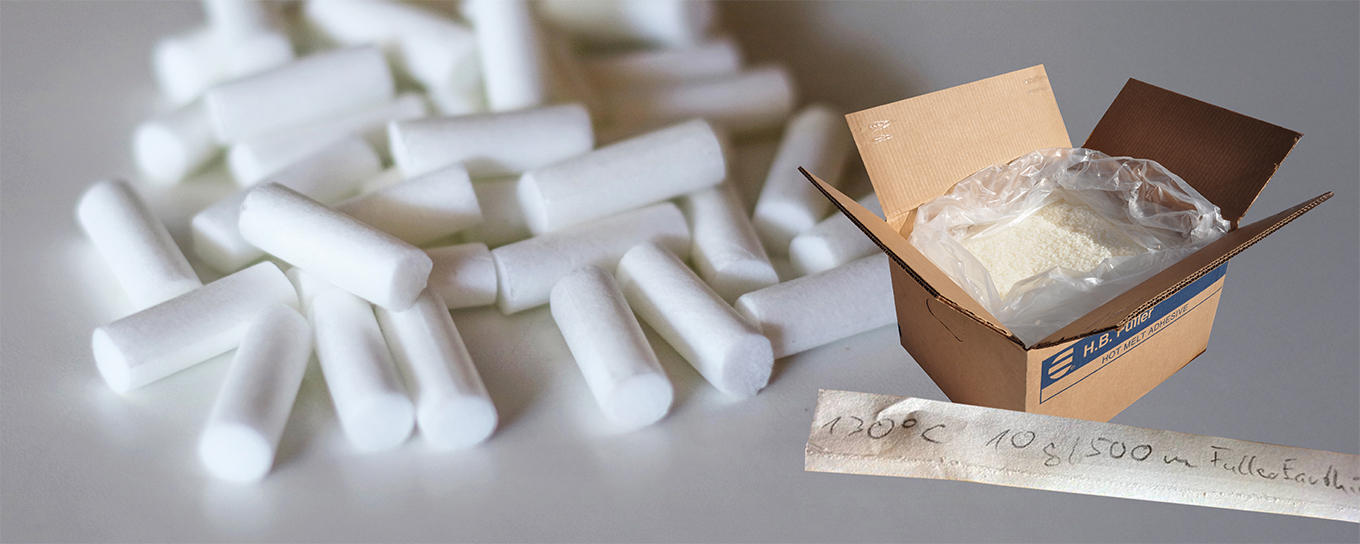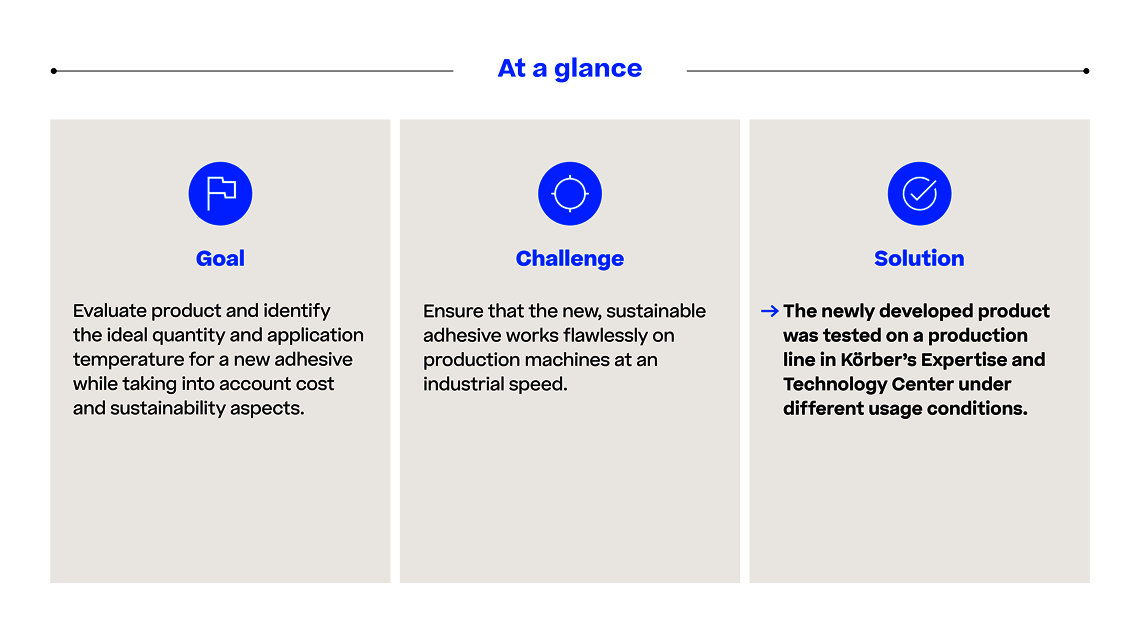The speed at which companies bring their innovations to market maturity is a decisive factor for success nowadays. However, manufacturers need to carefully investigate in advance how innovations will affect products and processes. H.B. Fuller also chose to go through this testing process as it prepared to manufacture its new sustainable glue Advantra® Earthic™ 9365. This innovative H.B. Fuller product helps the tobacco industry mitigate the environmental impact caused by its filters. “The new adhesive contains a very high proportion of renewable raw materials and reduces the filters’ carbon footprint. At the same time, it also ensures excellent filter bonding, maintaining stability even during extended storage periods,” explains Frank Beckmann, Senior Application Specialist at H.B. Fuller. “To fulfill this promise to our customers, we needed to test the new hot melt adhesive thoroughly as part of the product development process.”

News & Stories - 04/10/2025
Joining forces for greater sustainability
Rapid, reliable market launch
Laboratory studies and extensive tests are required under industrial production conditions for a rapid, reliable market launch. “We need an expert partner to achieve this,” affirms Beckmann. “We have a wide range of technologies which we can use in the laboratory to help develop adhesives. However, for very fast production processes in the tobacco industry, we need to verify to what extent the filter seam strength or other factors could lead to problems in production. Our laboratories are not equipped for such tests. That’s why we need to ensure that our laboratory findings are verified on industrial production machines before customers perform their own tests.”
Our Expertise and Technology Centre in Hamburg provided H.B. Fuller with the exact means to do just that. Drawing on its 75 years of experience, we provide everything required for a fast, cost-effective check on newly developed products and modifications to existing ones – from experts and test benches through to analysis procedures. “From the outset, we were confident that H.B. Fuller’s adhesive Advantra® Earthic™ 9365 was suitable for processing at full speed on our filter machines. The tests were also designed to ascertain the lowest possible temperature and quantity for applying the adhesive,” reports Ralf Soltow from our Competence Center Rod-Filter Technology. “To achieve this, we first determined the current filter quality on a KDF 6 Lead with a filter 7.62 mm in diameter using a standard hot glue. We subsequently conducted precise analyses of the filter quality with the Fuller test adhesive at different temperatures, with different quantities of adhesive, and at a speed of 600 m/min.”
Tests ensure further energy savings
The results of the tests exceeded H.B. Fuller’s expectations: “The amount of adhesive used on filters has a considerable impact on both cost-effectiveness and sustainability: The fewer resources we need, the more raw materials we save on,” states Soltow. “Reducing the application temperature also helps save electricity throughout the entire hot glue system infrastructure: the tank, pump, hose, and nozzle all require less energy. The tests have enabled us to decrease the recommended amounts of adhesive and the recommended temperature.”

Share this article

